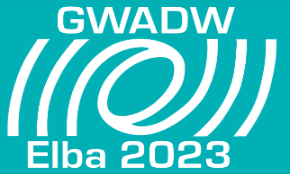Speaker
Description
Newtonian noise will likely limit the low-frequency sensitivity of future terrestrial gravitational wave detectors. Commissioning of the third-generation Torsion Pendulum Dual Oscillator (TorPeDO), a sensor for direct detection of Newtonian noise is in progress at the Australian National University. This sensor comprises of two freely suspended perpendicular torsion bars and they differentially rotate in response to Newtonian fluctuations. The differential angle is optically measured via length changes of four Fabry-Perot cavities formed around the two torsion bars. The Pound-Drever-Hall technique is used to interrogate each cavity with an individual laser. However, the free-running frequency noise of readout lasers will dominate the sensor readout. To mitigate this, each of the readout lasers is controlled to a common reference laser with a heterodyne phase-locked loop. We will present the implementation and characterization of the four simultaneous heterodyne phase-locked loops and discuss their performance and limits with respect to the scientific readout requirements for the TorPeDO.

